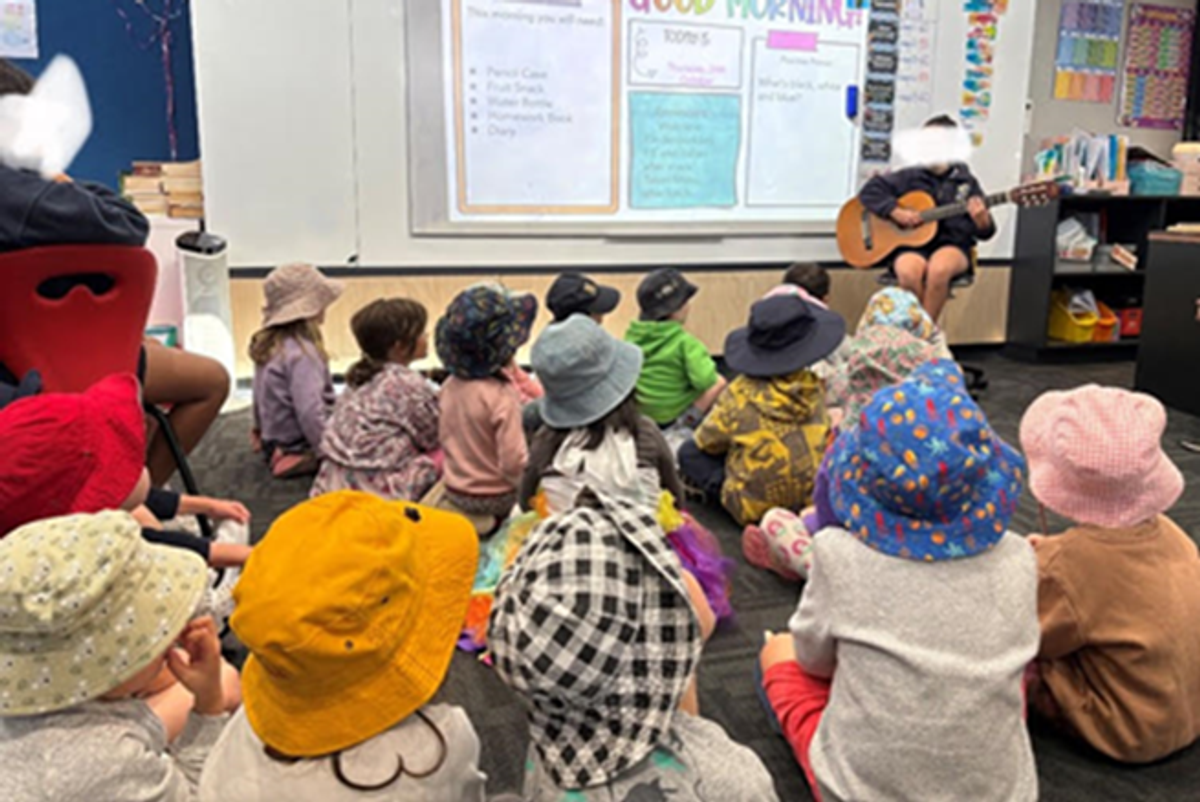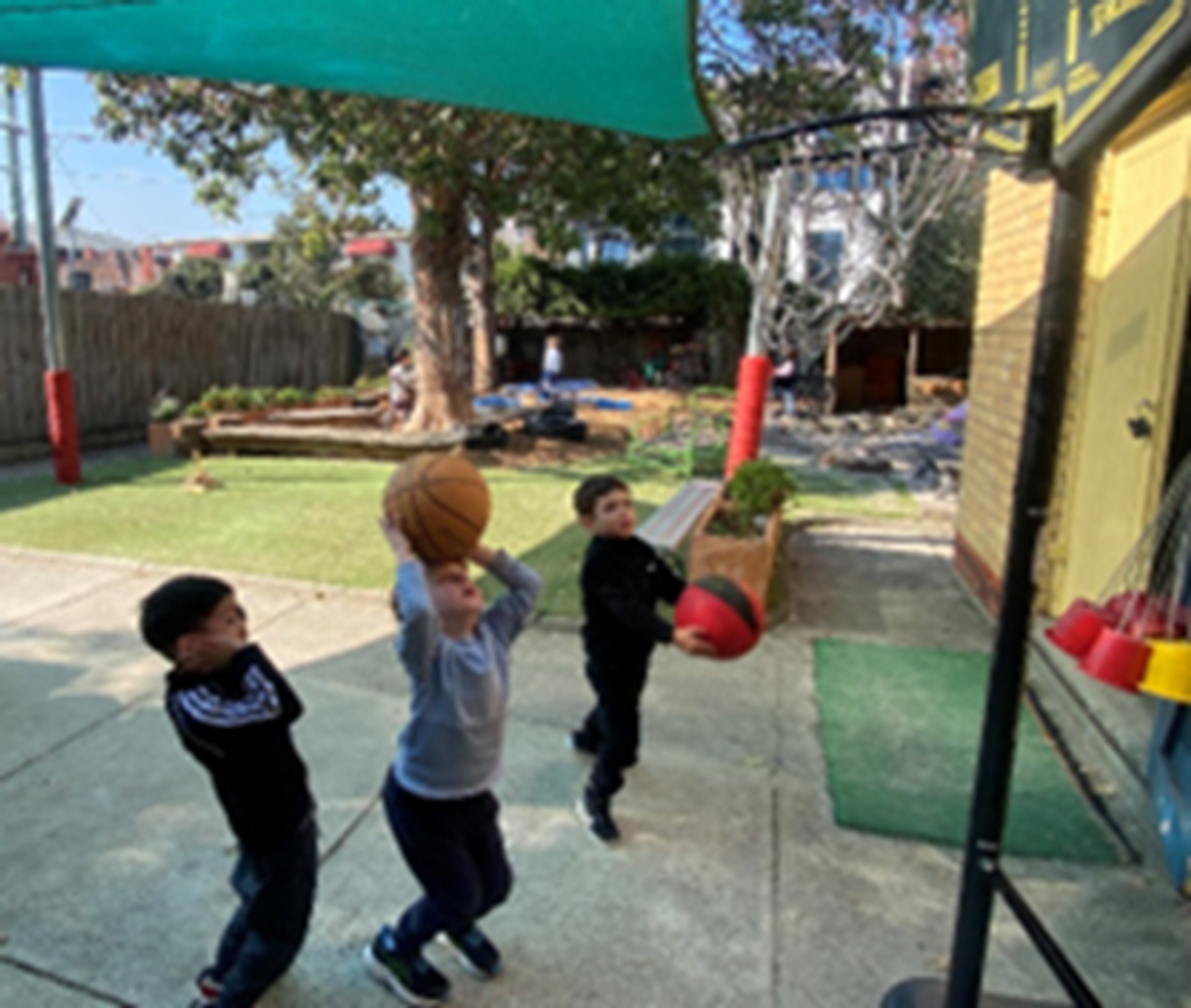Glen Education Orrong Road

Transition to school
By Glen Orrong Rd Educational Team
Quality Area 1: Educational program and practice
Element 1.1.1 - Curriculum decision-making contributes to each child’s learning and development outcomes in relation to their identity, connection with community, wellbeing, confidence as learners and effectiveness as communicators.
Element 1.1.3 - All aspects of the program, including routines, are organised in ways that maximise opportunities for each child’s learning.
Element 1.3.3 - Families are informed about the program and their child's progress.
Quality Area 6:Collaborative partnerships with families and communities
Element 6.2.1 - Continuity of learning and transitions for each child are supported by sharing information and clarifying responsibilities.
Element 6.2.3 - The service builds relationships and engages with its community.
A smooth and natural transition to school begins on the day when our children and families arrive at our kindergarten for their orientation session, or maybe even before.
Sharing information with the children and families for instance, about things to pack to kindergarten, talking about our kinder rules and expectations as well as communicating their individual goals for each term or the whole year would support both the children and families understand that our everyday practice, their voice and individual needs are always incorporated into the children’s programs.
From the beginning of term 1, our children are encouraged to focus on their individual needs and development such as self-help and independent living skills and being able to make their own choices, as well as practicing cooperative skills such as problem solving/negotiation skills, social skills and resilience throughout their play and relationships with other peers, grownups and their community.
There are many ways that we can support our children to feel confident and allow them to express themselves that they are emotionally and physically ready to extend their learning or move into a new environment in our everyday learning. For instance, through role-playing, group time, sports or games that the children can learn about rules and particular instructions or when they openly share their own ideas to create their own play and rules among their peers.
From term 3, we start asking our parents regarding their child’s school that they are enrolling the following year, how they will support their child transition to school or if they have any concerns that we can address together.
And here are some comments from our children, their perspective about starting school…
“I want to play in the big playground, and I’ll be so excited to get a new teacher!”
“I’m only 4 so I’m not ready for school yet. When I am 5, I will be ready, and I would have to get a new school bag.”
“School is bigger than kindergarten. There are lots of different teachers at school.”
“I think I am ready for school because I have had a lot of growth spurts and I practice math's a lot with my big brother, so my brain is ready for school.”
“You need to know how to make friends before you can start school.”
“Before you start school you need a uniform and a backpack. You have to learn your way around all the classrooms.”
“To be ready for school you have to eat better, like pumpkin and carrot and eggs to make your brain grow, so you are ready for school.”
“You have to learn the rules, and math's and sports and stuff.”
“You know you are ready for school when you have your school uniform on. You need a school buddy to be friends with you. You need to do good listening.”
“You have to know how to blow your nose.”
“You have to know how to be good, and you have to do good listening.”
“You might have to do homework, and if you need help the teacher will help you.”
“You will learn how to read. You have to be nice. You have to help children if they are crying or hurt. If you can’t do something, tell a teacher and they will help you, or keep trying until you can do it.”
“I’m not scared of school! My sister goes to school, and she says it's fun.”
“At school your brain will get bigger and you will do more learning. You might have to turn on your listening ears.”
Furthermore, one of our all-time favourite and unique activities that the children enjoy exploring their community as part of our “regular” planned excursion is “School Buddy Program” with our local school, St Joseph’s Primary School.
Through this program, we are invited to visit the school once per term, and the children get to interact with big peers (Grade 4 students) and explore the school. Our children pair up with one or two of the Grade 4 students (they have same school buddy throughout the year), and they do activities together or they simply enjoy talking to each other.
Before we leave our premises, we always conduct a group time to have a discission about road safety and how we should be behaving in public as a member of our local community. On our way to the school, our children enjoy exploring their neighborhood, greeting and waving to pedestrians, and spotting seasonal plants and flowers.
In return for our visit to the school, we invite the children’s school buddies to our kindergarten once per term. Through this amazing opportunity, our children can develop trust and confidence to go to school or talking to big peers and gain some ideas what/how it will be like when they go to school or can imagine themselves how they would look like in their school uniform.
All the learning experiences that the children create or experience throughout the day, week, term or year are always communicated and shared with the families on a daily basis and the documentations are visible and accessible to the children as well (for instance, a portfolio book, weekly reflection journals, Kinderloop app, and so on).
Knowing that our children will continue to thrive in a new journey of their life is such a pleasure for our educational team, and it is always so fun to imagine what amazing things are down the road!



